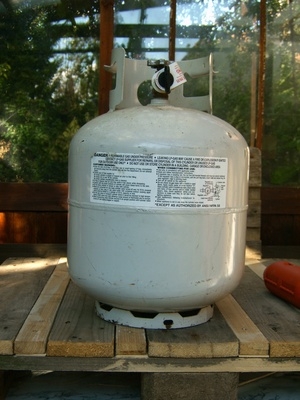
Propane is another name for liquified petroleum gas which is widely used to fuel furnaces, stoves, dryers, generators, heaters and barbecue burners. Some vehicles also run on propane once retrofit, although no new vehicles are sold with propane engines built in. Although propane is cheaper than gasoline and comes largely from domestic sources it also has a few important disadvantages.
As anyone needing to refill a barbecue tank is well aware of, propane is not as widely available as diesel fuel or gasoline. Relatively few gas stations have the large pressurized tanks necessary to store propane in a liquid state, so drivers of propane vehicles have to plan ahead. Home propane systems are generally filled by propane trucks, which also requires more forethought than using electrical heaters.
When used as a vehicle fuel, propane delivers fewer miles of travel on a tank than conventional diesel or gasoline fuels. This also means that home heating tanks need to be larger than their oil- or gas-fired equivalents. When combined with the difficulty of finding propane sources, this can make it an inconvenient vehicle fuel choice.
Propane gas burners don't work as well in freezing temperatures as burners powered by liquid fuels. Since the propane is a gas, the cold causes it to shrink in volume. This reduces the pressure in the system, resulting in less gas reaching the burner to be ignited. This is a problem when the propane is being burned in outdoor applications like camp stoves or barbecues.
Propane gas is very flammable, and if it escapes into a confined space can build up and explode if exposed to a spark or flame. In a domestic setting, this means propane lines must be very carefully inspected to ensure they aren't leaking. Damaged propane tanks can also be an explosion risk, as their internal pressure could cause them to burst.